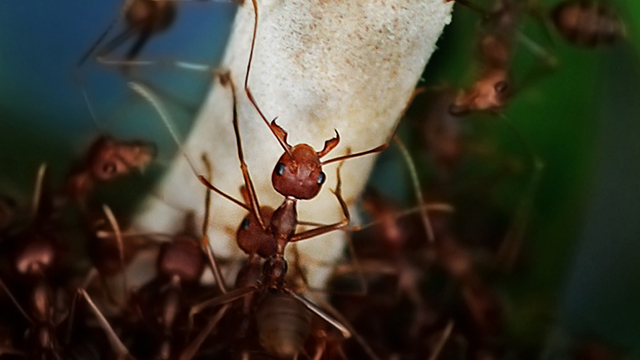Should Phoebe Prince’s Bullies Go to Jail?

Phoebe Prince hanged herself in her bedroom in South Hadley, Massachusetts at the age of 15. Six students from her high school are charged with hounding her to suicide. Emily Bazelon investigated the back story of the Phoebe Prince case for Slate as part of a series on cyber-bullying.
Like an anthropologist, Bazelon pieced together the complex social dynamics of South Hadley High through in-depth interviews with Phoebe’s classmates, grand jury records, and police interviews. To make a long, sad, byzantine story short, Phoebe was ostracized because she was an immigrant freshman who tried to date two boys whom older girls had claimed as their own.
Bazelon raises credible doubts about whether all six defendants are equally guilty. Media reports invited the inference that all six colluded to terrorize Phoebe. Bazelon ultimately concluded that some of the incidents that led to charges actually stemmed from more isolated conflicts rather than a grand, sustained conspiracy. Furthermore, while some defendants are accused of serious crimes, others are charged for doing things that don’t even sound illegal.
Flannery Mullins is charged because she allegedly made snarky allusions to “Irish sluts” on her facebook page, even though she never mentioned Phoebe by name, or said anything to her directly. The only corroborated face-to-face incident between Flannery and Phoebe involved the two girls pointedly not making eye contact in a school bathroom. Teachers warned the girls to stay away from each other and they did.
Flannery’s friend Sharon Chanon Velazquez is facing charges because she publicly berated Phoebe for being a slut and encroaching on Flannery’s boyfriend. She was suspended for doing it, and Bazelon found no evidence that she ever bothered Phoebe again.
Perhaps most disturbingly, 18-year-old Austin Renaud is charged with statutory rape even though he denies having sex with Phoebe. Clearly, he’s being charged because prosecutors want to link him with the bullying but lack direct evidence. It’s rare to prosecute consensual sex between teens so close in age, especially when nobody makes a complaint. Austin denies he ever slept with Phoebe. No one claims that he bullied her, either. On the contrary, sources told Bazelon that Austin was kind and sympathetic to Phoebe. His girlfriend Flannery was jealous, hence her snarky facebook updates.
Only three kids, only Phoebe’s ex-boyfriend, his current girlfriend, and their mutual friend ganged up on Phoebe on the last day of her life. It was a classic bullying pattern. They showed up together in the library and tormented her at lunch, then they accosted her again after school, finally one of the girls sped past Phoebe in a car and threw an empty drink can at her.
Bazelon argues convincingly that three of the six defendants have been unfairly lumped in with the three hardcore tormentors. She also notes that Phoebe was psychologically unstable even before the bullying and had attempted suicide in the past.
My only reservation about the piece is that it veers dangerously close to victim blaming. Bazelon doesn’t condone the abuse, but she flirts with the idea that some of the aggression towards Phoebe wasn’t really bullying:
What actually happened, in the eyes of many of the students I’ve talked to, is that Phoebe got into separate conflicts with different kids. That doesn’t excuse the other kids’ bad behavior in response to Phoebe’s actions. But it was one source of the trouble. Social scientists generally define bullying as repeated acts of abuse that involve a power imbalance. Is that what happened to Phoebe? “In the end you can call it bullying,” says one adult at the school.“But to the other kids, Phoebe was the one with the power. She was attracting guys away from relationships.” (Because of the hyper-publicity surrounding this case, I was able to talk to staff at the school only on condition of anonymity.) [Slate]
I understand the need to put Flannery and Sharon’s behavior in context; but bullying over boys is still bullying. Slut-shaming is still bullying. The fact that Phoebe may have deliberately defied social norms doesn’t make her fundamentally different from someone who is bullied for her weight, or her teeth, or any of the other bullshit pretexts kids use to torment their vulnerable peers. In fact, slut-shaming is an especially insidious and effective bullying tactic because it leverages preexisting social stigmas. If you make fun of a kid with a limp, you’re the meany. Whereas, if you humiliate a girl for being “slutty,” you’re a guardian of public morals and traditional values.
Even the milder abuses Phoebe endured were clearly instances of bullying and/or social aggression. Girls joined forces to marginalize and humiliate a younger student, a newcomer with a serious mental illness. However, glaring at someone in a bathroom is not an issue for the criminal justice system; but throwing a projectile from a speeding car at a pedestrian clearly is. It doesn’t matter whether the victim “stole” someone’s boyfriend. Bazelon’s otherwise excellent article is marred by this confusion.





